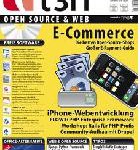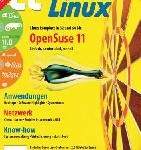New distribution features an entirely open toolchain and advances customization ability; Fedora Core and Fedora Extras merge to become Fedora 7
The Fedora Project, a Red Hat, Inc. (NYSE: RHT) sponsored and community-supported open source collaboration, today announced that the latest version of its distribution, Fedora 7, is now available. The Fedora Project provides the best of next-generation open source technologies and, in its latest version, features a new build capacity that allows for the creation of custom distributions. Fedora 7 now offers a completely open source build process that greatly simplifies the creation of appliances that can be targeted to meet individual needs.
Fedora 7 development has focused on improving the manner in which all Fedora releases will be made,
said Max Spevack, Fedora Project Leader at Red Hat. Beyond the usual set of upstream changes and improvements, our latest release is by far the most exciting and flexible to date. With our new open source build process, our community of contributors will enjoy much greater influence and authority in advancing Fedora. The ability to create appliances to suit very particular user needs is incredibly powerful.
Fedora 7 provides the first appliance development platform that is 100 percent open source with an entirely free distribution build toolchain. The Fedora 7 source code is hosted in a public version control system, the RPMs are built on an external build system and the distributions are built with an external, open source compose tool that allows access by the entire Fedora community.
Through Fedora 7, the community is given an enhanced role that encourages greater openness and collaboration. As a result of its flexible, public build environment, Fedora 7 provides users with the ability to customize like never before. With these capabilities, combined with live CD, DVD and USB technology, the possibilities for appliance creation are endless. After customization, Fedora can be loaded onto various forms of bootable media, allowing users to run their operating system without a hard disk installation.
Fedora 7 features Kernel-based Virtual Machine (KVM) and Qemu virtualization technologies in addition to Xen. All implementations can be managed using the Fedora graphical virtualization manager.
The Fedora 7 release also marks a significant milestone in Fedora’s emergence as a leading community-driven project. Formerly, the packages in Fedora Core were maintained only by Red Hat employees, while the packages in Fedora Extras were maintained by community members. Fedora 7 does away with this distinction; the new single Fedora repository is accessible to Red Hat employees and community members alike, giving the community more influence over Fedora than ever before.
For more information on Fedora, to download or to join this community effort, please visit: http://fedoraproject.org.
About Red Hat, Inc.
Red Hat, the world’s leading open source solutions provider, is headquartered in Raleigh, NC with over 50 satellite offices spanning the globe. CIOs have ranked Red Hat first for value in Enterprise Software for three consecutive years in the CIO Insight Magazine Vendor Value study. Red Hat provides high-quality, low-cost technology with its operating system platform, Red Hat Enterprise Linux, together with applications, management and Services Oriented Architecture (SOA) solutions, including the JBoss Enterprise Middleware Suite. Red Hat also offers support, training and consulting services to its customers worldwide. Learn more: www.redhat.com.
Forward-Looking Statements
Certain statements contained in this press release may constitute forward-looking statements
within the meaning of the Private Securities Litigation Reform Act of 1995. Forward-looking statements provide current expectations of future events based on certain assumptions and include any statement that does not directly relate to any historical or current fact. Actual results may differ materially from those indicated by such forward-looking statements as a result of various important factors, including: risks related to the integration of acquisitions; the ability of the Company to effectively compete; the inability to adequately protect Company intellectual property and the potential for infringement or breach of license claims of or relating to third party intellectual property; risks related to data and information security vulnerabilities; ineffective management of, and control over, the Company’s growth and international operations; adverse results in litigation; the dependence on key personnel as well as other factors contained in our most recent Annual Report on Form 10-K (copies of which may be accessed through the Securities and Exchange Commission’s website at http://www.sec.gov), including those found therein under the captions Risk Factors
and Management’s Discussion and Analysis of Financial Condition and Results of Operations
. In addition, the forward-looking statements included in this press release represent the Company’s views as of the date of this press release and these views could change. However, while the Company may elect to update these forward-looking statements at some point in the future, the Company specifically disclaims any obligation to do so. These forward-looking statements should not be relied upon as representing the Company’s views as of any date subsequent to the date of the press release.
LINUX is a trademark of Linus Torvalds. RED HAT® and JBOSS® are registered trademarks of Red Hat, Inc. and its subsidiaries in the US and other countries.






